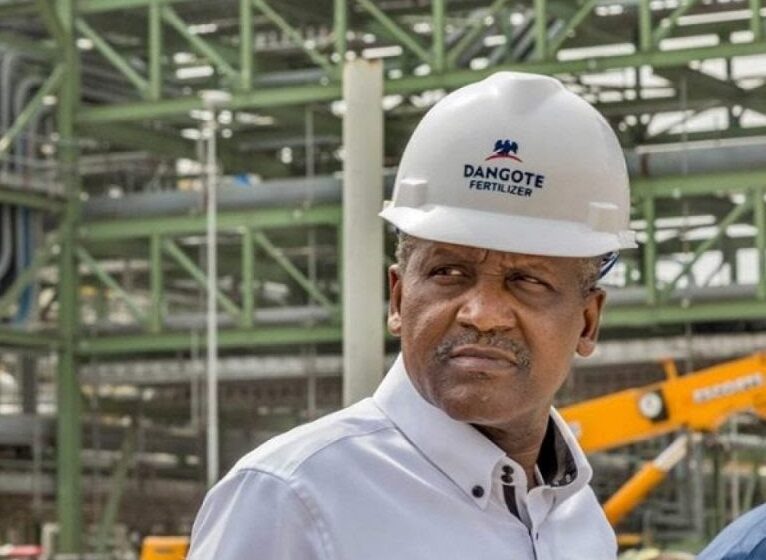Five possible results if the naira-for-crude deal ends without backup

Dangote Refinery reduces petrol price: What Nigerian consumers need to know Image Source: Punch
Nigeria, the most populous black nation in the world and a big supplier of crude oil stands at a crossroads as the controversial “naira-for-crude” deal, a policy allowing domestic refineries like Dangote to purchase crude oil in naira rather than US dollars is at its end. Introduced on October 1, 2024, this six-month policy aimed to improve local refining, ease pressure on foreign exchange reserves, and stabilize fuel prices. Yet, with the Nigerian National Petroleum Company Limited (NNPCL) reportedly unable to sustain crude supplies due to forward sales commitments and delayed renegotiations, the deal’s demise seems imminent.
What could happen if the naira-for-crude policy after its six-month time frame? This piece is set to explore five probable scenarios that could occur if the policy ends without a better option aimed at improving the economic situation of the country.
Increased fuel prices
Imagine Lagos, Abuja, and Kano busy streets, where commercial vehicles go through traffic, suddenly grinding to a halt. If the naira-for-crude deal collapses, refineries like Dangote, which processes 650,000 barrels per day, would revert to buying crude in dollars. This shift, as energy analysts have warned in Businessday NG, would increase production costs, pushing petrol prices from the current N935 per liter at independent depots to well over N1,000.
READ ALSO
10 fact-based reasons why Nigeria’s economy is far from being in shambles
Port Harcourt refinery finally working? Here’s what to know
From grace to grass? How Dangote Refinery’s trouble started
Depreciating naira
Moreover, if eventually the deal comes to an end after March, 2025 and with no better alternative from the Nigerian government or oil producing companies, it would force refineries to scramble for dollars, increasing the demand in an already forced forex market. The naira, which fell to N1,532.94/$ recently per CBN data, could slide past N1,600/$ in just days, as predicted by financial analyst. This could further devalue the naira, making imports more expensive and worsening inflation.
Fuel scarcity returns to cripple the nation
Now, imagine empty fuel stations from Abuja to Port Harcourt, with black market sellers hawking jerrycans at triple the price. The naira-for-crude deal promised 385,000 barrels daily to Dangote, but NNPCL delivered just a fraction, sometimes as low as 61,290 barrels, per Businessday NG. A collapse today could sever this lifeline entirely, forcing Dangote to import crude at dollar rates, a logistical nightmare given Nigeria’s erratic port infrastructure.
Local refining dreams and jobs could vanish
Step into the gleaming halls of Dangote Refinery in Lekki, a $20 billion beacon of Nigeria’s self-sufficiency hopes. The naira-for-crude deal was its backbone, ensuring crude at manageable costs. If it ends without a backup strategy, operational hurdles could postpone this mega-project and smaller refineries, reducing job prospects. The refinery employs thousands directly and supports countless more indirectly—like those into agricultural production and distribution, how can they now make their supply seamlessly with this current controversy?
Economic instability and political unrest
Overall, the twilight of this economic policy will promote economic instability and civil unrest, multiple protests more severe than the 2024 #EndBadGovernance could rock the nation. Aso Rock and other government buildings could be under siege. However, the case will not come by guns, but by placards and chants. The end of the naira-for-crude without a backup intervention could ignite economic chaos that spills into the political arena. With inflation already at 29.9% in January 2025 (per Nigeria’s National Bureau of Statistics), increased fuel costs and a weaker naira could push millions deeper into poverty. A piece in the Punch warned on March 19 that forex pressure from dollarized crude purchases could “dollarize” the economy, a fate Tinubu vowed to avoid.
Conclusion
As the clock ticks towards the end of this economic policy, Nigerians are anticipating the government’s next agenda for survival. The naira-for-crude deal’s potential end is not just a policy failure, rather an experiment for a nation struggling for democratic and economic survival. I join my voices with millions of Nigerians, urging swift presidential intervention. Without swift action, either renewed talks or a new framework, these five scenarios could unfold, each a thread unraveling the fragility of Nigeria’s future. The stakes are personal, and the cost of failure, unimaginable.

